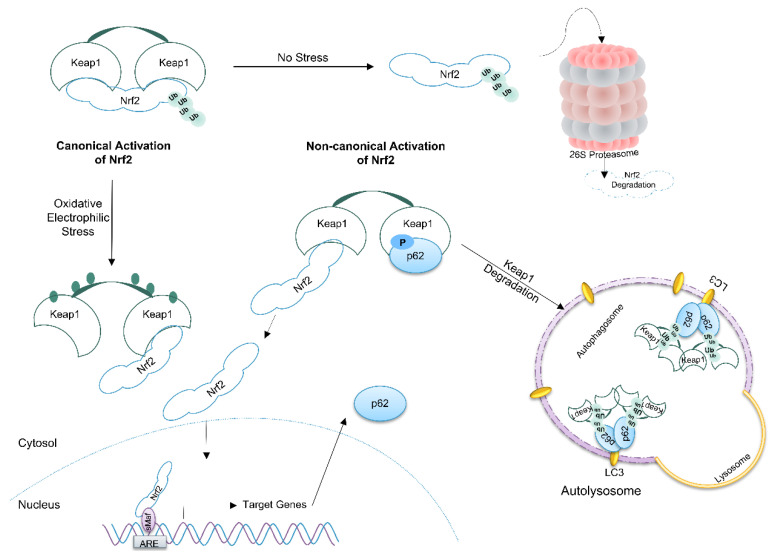Figure 2.
Non-canonical Nrf2 activation by p62. Under non-stressed conditions, the cytoprotective transcription factor Nrf2 is continuously degraded by the proteasome upon Keap1-mediated ubiquitination. Oxidation of regulatory cysteine residues of Keap1 in situations with oxidative and electrophilic stress inhibits Keap1 and ubiquitination of Nrf2 causing canonical Nrf2 activation and induction of target gene expression. When p62 is phosphorylated at Ser349, it binds to Keap1 causing its autophagic degradation. Afterwards, Nrf2 is free to translocate to the nucleus and to induce target gene expression (non-canonical Nrf2 activation) [79].

